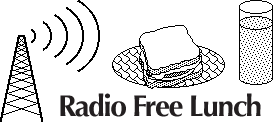Google finds my personal site as the #1 hit, which seems right to me. Cuil found the A Sharp site — that’s my company, so it’s not a bad #1. And it chose the company logo to illustrate the search result. But it used the same company logo to illustrate the story below, about some football player.
There was also a mailing list message from me on the first results page. This was illustrated with a picture of two adult males. One of them might share my name, but has nothing to do with the web site that archived the mailing list.
For fun, I tried searching for “google.” The picture next to the #1 result (which was at least www.google.com) was a broken link…
So I think they have a ways to go on relevance, and need to make sure pictures are actually connected to the search result.
